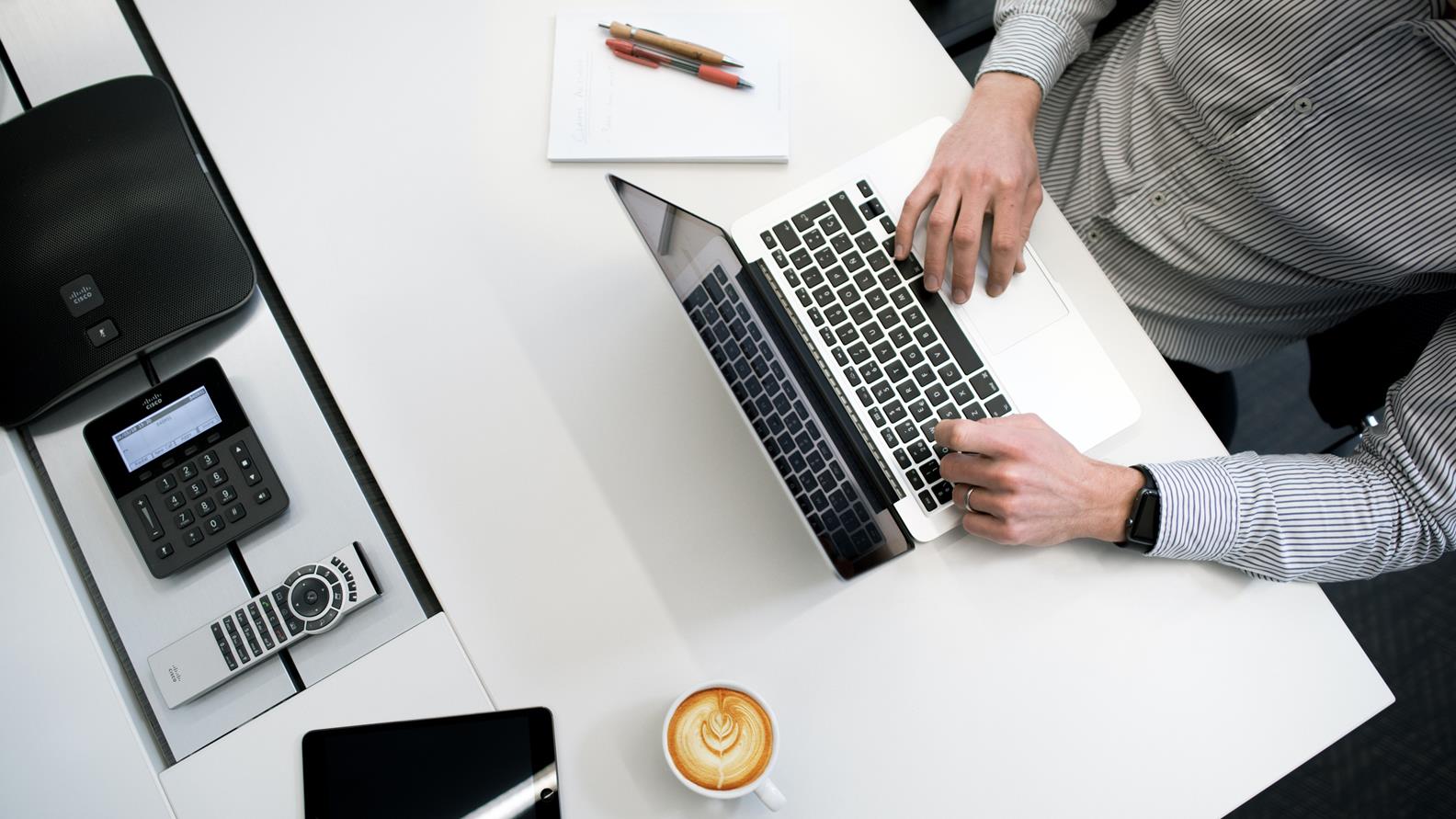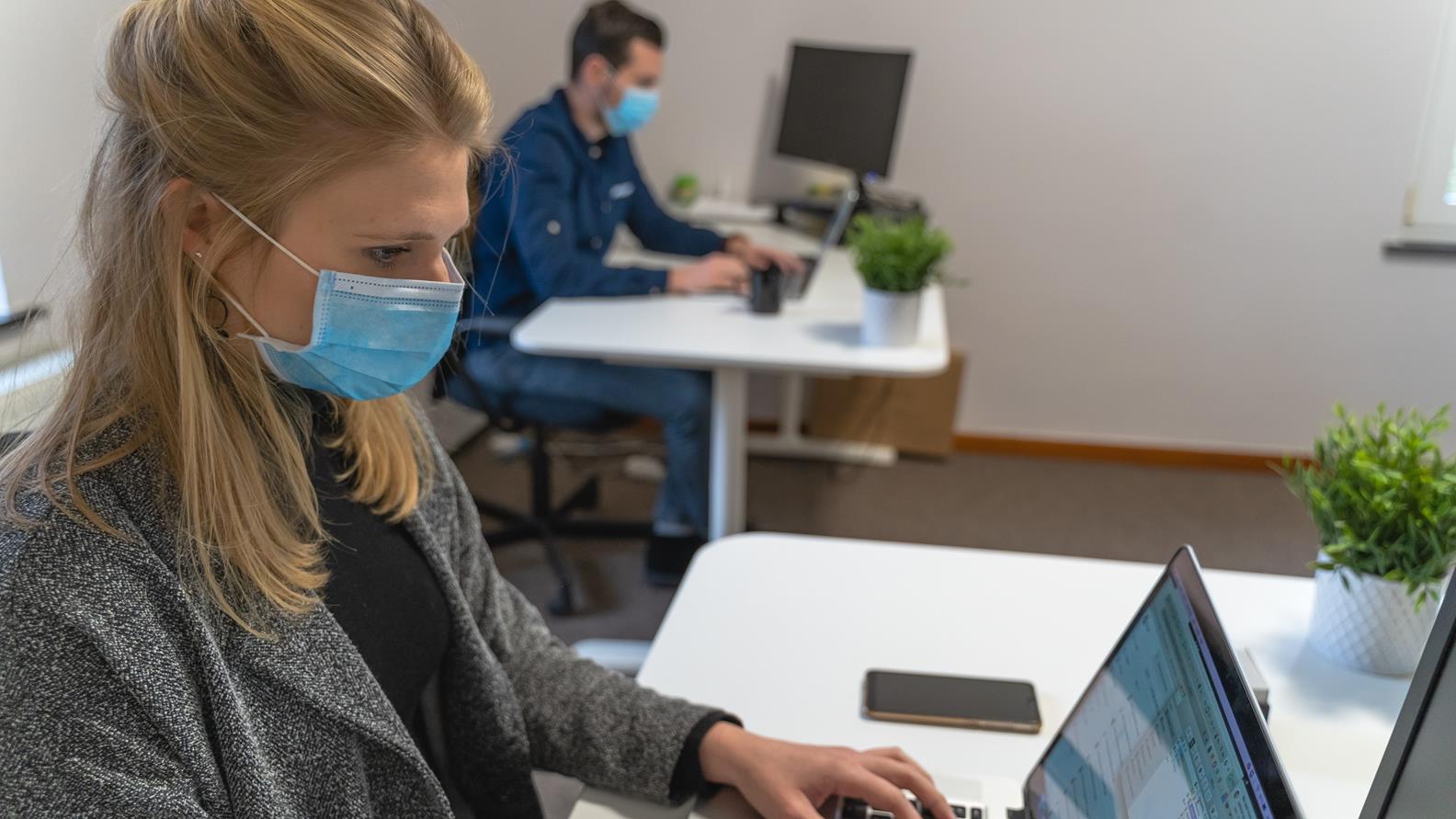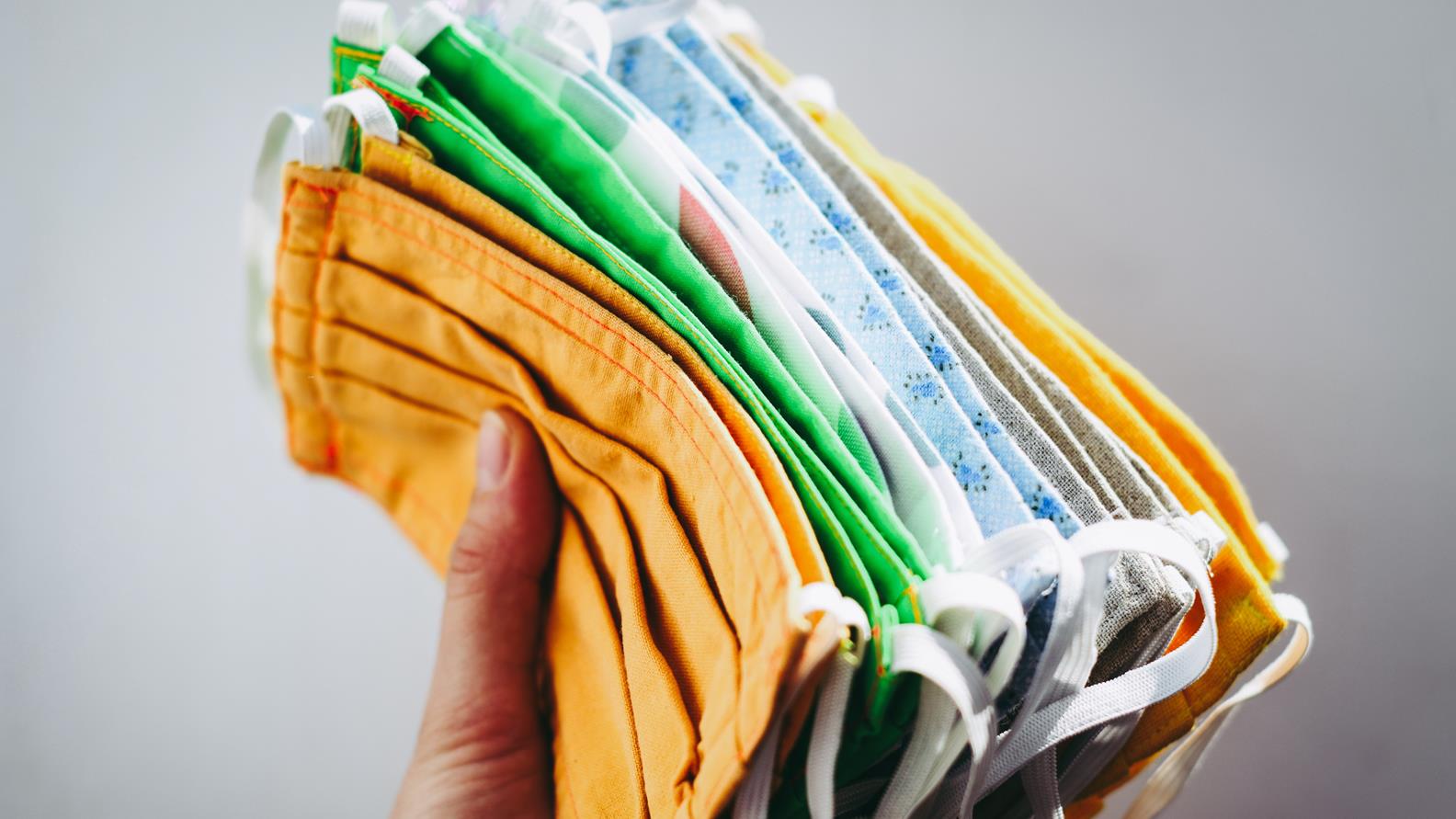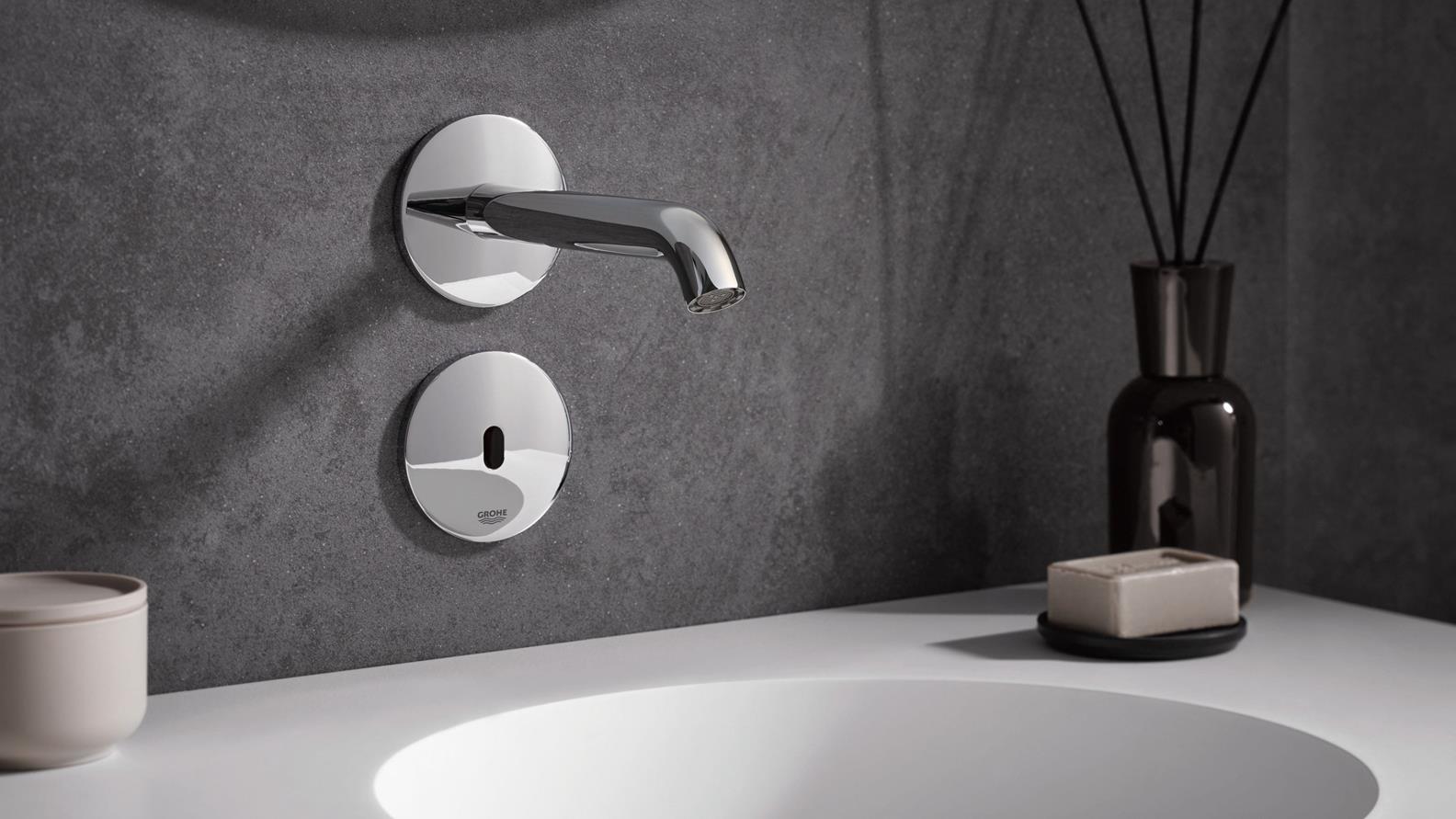Did You Know?
Hygiene in the workplace
No matter whether you are at home, on the go or in the office, you cannot avoid germs. Right now, more than ever, it is very important to take measures to stay healthy. How do viruses spread and what do you have to bear in mind to protect yourself from them? A summary of the most important facts.
Bacteria and viruses are microscopically small. As such, it can be easy to forget everything that they can do. And they are everywhere. At home, in public places and, of course, also in the workplace.
But don’t worry, there’s no need to panic! Normally, our immune system successfully defends us against invaders before they can make us sick. Nevertheless, hygiene rules should be followed precisely in order to keep the risk as low as possible.
Since the beginning of the ongoing COVID-19 pandemic, hygiene in the workplace is also playing a much larger role than usual. As a result, one’s health must be protected as one of the most valuable resources and any risks to one’s health must be countered by having an enhanced awareness of hygiene.
Did you know…
-
… that some viruses can survive for multiple days, months and even years on surfaces before they die? This is why basic hygiene is extremely important!
-
Influenza: up to two days
-
Coronavirus: up to nine days
-
Streptococci: up to six months
-
Salmonellae: up to four years
-
-
… that a majority of viruses and bacteria can be easily “washed away” with soap and water?
-
… that washing your hands for 20-30 seconds is sufficient as long as you do it thoroughly?
-
… that the temperature of the water plays no role in this? You can freely choose between 0°C and 35°C.
-
… that most flus are caused by droplet infections? There is also a high risk if we touch the mucous membranes with dirty hands.
-
… that we touch our faces an average of 3.6 times per hour with our hands? That equates to about 86 times every 24 hours.
But where do most germs accumulate in the office?
Did you know that up to 400 times more germs accumulate on desks than on a toilet seat? That is always the case, since wherever people are active, germs are active, too. Most germs are not harmful to one’s health. In fact, many germs are in essential for our microbial balance. Even with this in mind, it certainly cannot hurt to clean your desk regularly.
On which objects do most germs accumulate?
-
The telephone comes in first place with up to 25000 bacteria per square inch.
-
In second place comes the desk with 21000 bacteria per square inch.
-
After this comes the keyboard with around 3300 bacteria per square inch.
-
And the mouse with up to 1700 bacteria per square inch.
-
In contrast, only 50 bacteria per square inch can be found on a toilet.


How are germs transferred fastest?
Transmission via droplets:
Tiny droplets of saliva fly through the air when we sneeze, cough and speak. If they quickly fall to the ground, they are normally harmless at a distance of 1.5 meters. Of course, it is important that the person opposite does not sneeze or cough directly in our direction without a filter. In such cases, tiny droplets of saliva can fly through the air for several meters. Cold and flu viruses can transfer quickly from person to person in this manner.
Transmission via hands and objects:
Many germs can be found on surfaces. Areas that are used by a large number of people are especially critical. Germs can, for example, often be found in buses and on trains.
Don’t worry, there’s no need to panic, since not all germs make people sick. The easiest way to avoid this kind of infection is to thoroughly wash your hands. After all, healthy skin is impermeable to most germs. When we touch our mouths, noses or eyes with unwashed fingers, we leave undesired germs there.
Tips & tricks
How can you additionally protect yourself and reduce the spread of illnesses in the workplace?Hands off!
Especially during the ongoing COVID-19 pandemic, hugging and shaking hands should be avoided and a minimum distance of at least two meters must be complied with.
Achoo!
Cough and sneeze into the crook of your arm, not into the palm of your hand. This prevents viruses from being transmitted by touch.
Don't touch your face!
Even if it is really tough not to, you really should avoid touching your face. If you want to scratch your eyes or nose, you should wash your hands first.
In the bathroom
Used paper towels should not be disposed of in just any container; they should instead be disposed of in a container with a cover.
Home office
Even if you only have a slight cold, you should definitely work from home.
Bon appetit!
You really shouldn’t eat at your desk. After all, the most germs and bacteria accumulate there.
It’s better to keep your distance
One of the simplest protective measures is to keep your distance from other people who are coughing or demonstrating symptoms of a cold.
Strengthen your immune system
A balanced diet provides all necessary nutrients. Vitamins C and D, zinc and some B vitamins can prevent a cold. But you should discuss supplementing your nutrients with vitamin pills with your doctor or pharmacist.
Contactless fixtures
Last but not least, non-contact fittings are particularly beneficial in the workplace. The faucet, controlled with the help of an infrared sensor, registers when the user's hands approach and activates the tap automatically. If no more movement is registered, the water jet dries up by itself after a certain follow-up time.

Automatic faucets such as the GROHE Bau Cosmo E are not only easy to operate, they are also extremely hygienic. If you operate the faucet with dirty hands, you can leave germs on it, which another person can then ingest. The contactless operation prevents this efficiently.
Otherwise, be sure to follow the basic rules: eat well, wash your hands, don’t touch your face and keep your distance! If you do, there is much less risk that you will contract the virus.





